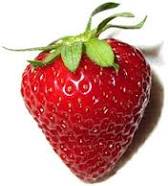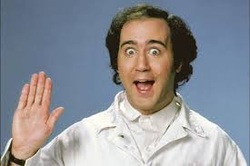
Here is some farms that I recommend for picking your own .If you know any more let me know via the contact us form. Thank you
Castle Eden Fruit Farm
Wynyard Road, Thorpe Thewles, Stockton On Tees TS21 3JG
Telephone: 07802910255
Stokesley Soft Fruit Strawberry Farm
Pannierman Lane, Great Ayton, Middlesbrough TS9 6PP
Telephone: 01642 723703
Sedgefield Farmers Market- Cross HilL , Sedgefield ,Durham
The Farmers' Market is held on the Second Sunday of each month. The market takes place on Cross Hill in the centre of the village and a wide range of traders attend. e.g Northumberland Cheese Company - Pasteurised cheese using vegetarian Rennet. Cows Milk: Chevington; Cheviot; Coquetdale; Hadrian; Kielder; Northumberland-Chive, Chilli, Garlic, Nettle, Original, Smoked; Reiver; Tynedale; Sheep's Milk: Redesdale; Goats Milk
Durham Farmers Market - Durham Market Place
The farmers market is held the 3rd Thursday of every month in the Market Place. Over 20 traders attend each event so you can be assured of quality local foods direct from the producer. The market starts at 8.30am and usually trades until 3.30pm or until sold out if sooner.
If you are a local producer and would like to attend our monthly farmers' market then please contact Jo in the Market Office on 0191 384 6153 for further information.
The City of Durham has long had an association with Markets going back to Saxon and Norman times. The Market Place became the focal point for traders to sell their wares alongside farmers, butchers, greengrocers, shoemakers, street pedlars and entertainers, all making the weekly Market Day a colourful and vibrant social occasion for all the family.
By the start of the Nineteenth Century overcrowding in the Market Place became a real problem with the various trades being widespread and disorganised throughout that part of the City. Traders banded together with local businessmen to petition for both the building of a purpose built Market Hall and for a more organised running of the Markets.
In May 1851 The Durham Markets Company Act was passed for establishing new Markets and Market Places in the City of Durham, for abolishing the Corn Tolls and for regulating the Markets and Fairs within the said City and Suburbs therof and for other Purposes.
The area set aside for the new Market Hall was part of the site of New Place, the former palace and gardens built in the Middle Ages for the Nevilles of Raby and Brancepeth, the Earls of Westmoreland, who had forfeited the property to the Crown after their involvement in the ill-fated Rebellion of the North in 1569.
The palace was eventually bought from King James II in 1612 by Henry Smith's Charity and was used as a factory, workhouse and charity school before being demolished to ultimately make way for the present Market Hall.
The Market Hall is described by Nikolaus Pevsner as ‘interior mostly with the usual cast-iron roof in a series of pitches on cast-iron columns, but stone vaulted at the N end. The back elevation, exposed to Leazes Road, has no Gothic pretences, just a massive retaining wall and plain segmental-headed windows under a row of gables’.
Castle Eden Fruit Farm
Wynyard Road, Thorpe Thewles, Stockton On Tees TS21 3JG
Telephone: 07802910255
Stokesley Soft Fruit Strawberry Farm
Pannierman Lane, Great Ayton, Middlesbrough TS9 6PP
Telephone: 01642 723703
Sedgefield Farmers Market- Cross HilL , Sedgefield ,Durham
The Farmers' Market is held on the Second Sunday of each month. The market takes place on Cross Hill in the centre of the village and a wide range of traders attend. e.g Northumberland Cheese Company - Pasteurised cheese using vegetarian Rennet. Cows Milk: Chevington; Cheviot; Coquetdale; Hadrian; Kielder; Northumberland-Chive, Chilli, Garlic, Nettle, Original, Smoked; Reiver; Tynedale; Sheep's Milk: Redesdale; Goats Milk
Durham Farmers Market - Durham Market Place
The farmers market is held the 3rd Thursday of every month in the Market Place. Over 20 traders attend each event so you can be assured of quality local foods direct from the producer. The market starts at 8.30am and usually trades until 3.30pm or until sold out if sooner.
If you are a local producer and would like to attend our monthly farmers' market then please contact Jo in the Market Office on 0191 384 6153 for further information.
The City of Durham has long had an association with Markets going back to Saxon and Norman times. The Market Place became the focal point for traders to sell their wares alongside farmers, butchers, greengrocers, shoemakers, street pedlars and entertainers, all making the weekly Market Day a colourful and vibrant social occasion for all the family.
By the start of the Nineteenth Century overcrowding in the Market Place became a real problem with the various trades being widespread and disorganised throughout that part of the City. Traders banded together with local businessmen to petition for both the building of a purpose built Market Hall and for a more organised running of the Markets.
In May 1851 The Durham Markets Company Act was passed for establishing new Markets and Market Places in the City of Durham, for abolishing the Corn Tolls and for regulating the Markets and Fairs within the said City and Suburbs therof and for other Purposes.
The area set aside for the new Market Hall was part of the site of New Place, the former palace and gardens built in the Middle Ages for the Nevilles of Raby and Brancepeth, the Earls of Westmoreland, who had forfeited the property to the Crown after their involvement in the ill-fated Rebellion of the North in 1569.
The palace was eventually bought from King James II in 1612 by Henry Smith's Charity and was used as a factory, workhouse and charity school before being demolished to ultimately make way for the present Market Hall.
The Market Hall is described by Nikolaus Pevsner as ‘interior mostly with the usual cast-iron roof in a series of pitches on cast-iron columns, but stone vaulted at the N end. The back elevation, exposed to Leazes Road, has no Gothic pretences, just a massive retaining wall and plain segmental-headed windows under a row of gables’.

 RSS Feed
RSS Feed
